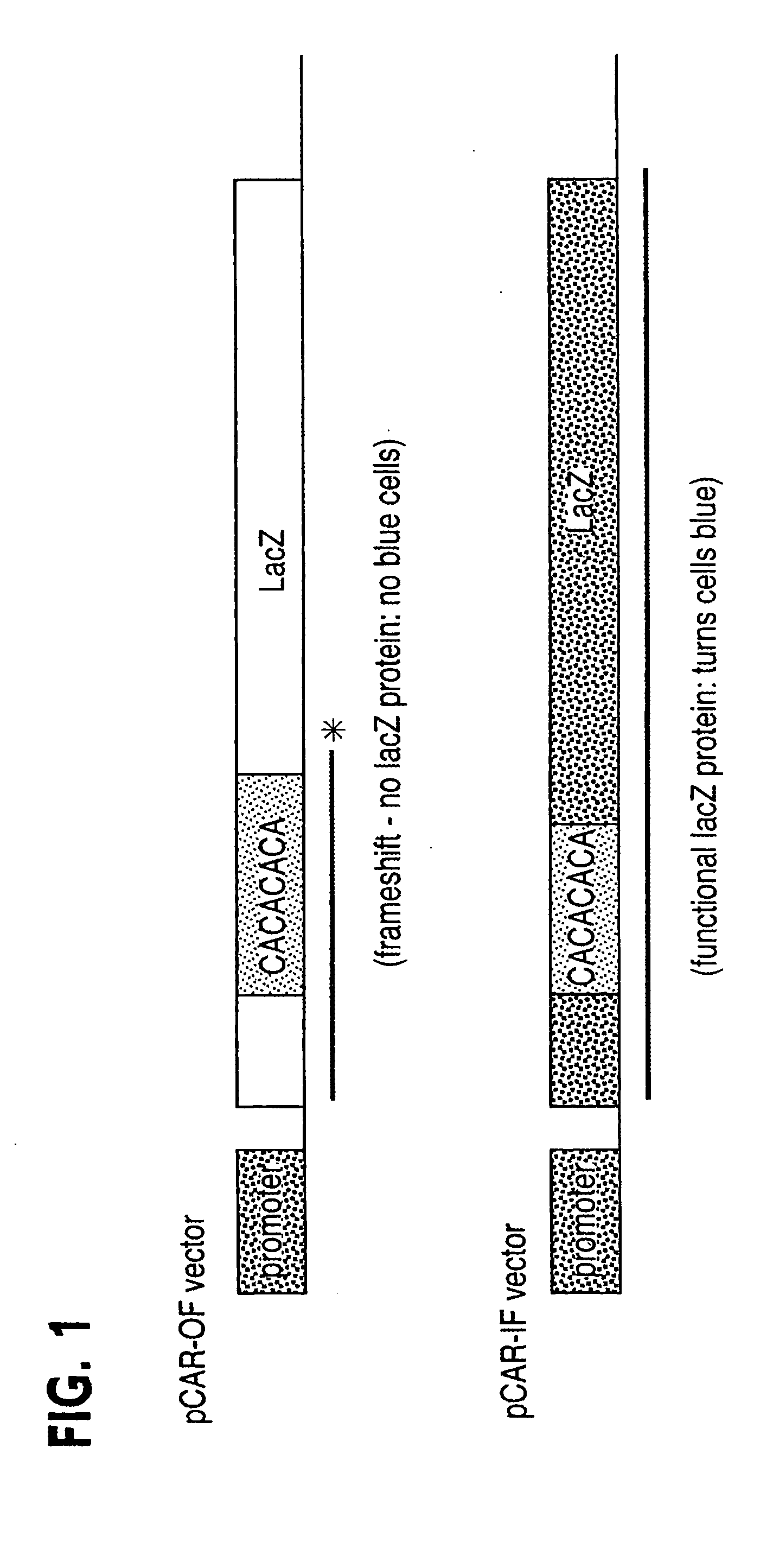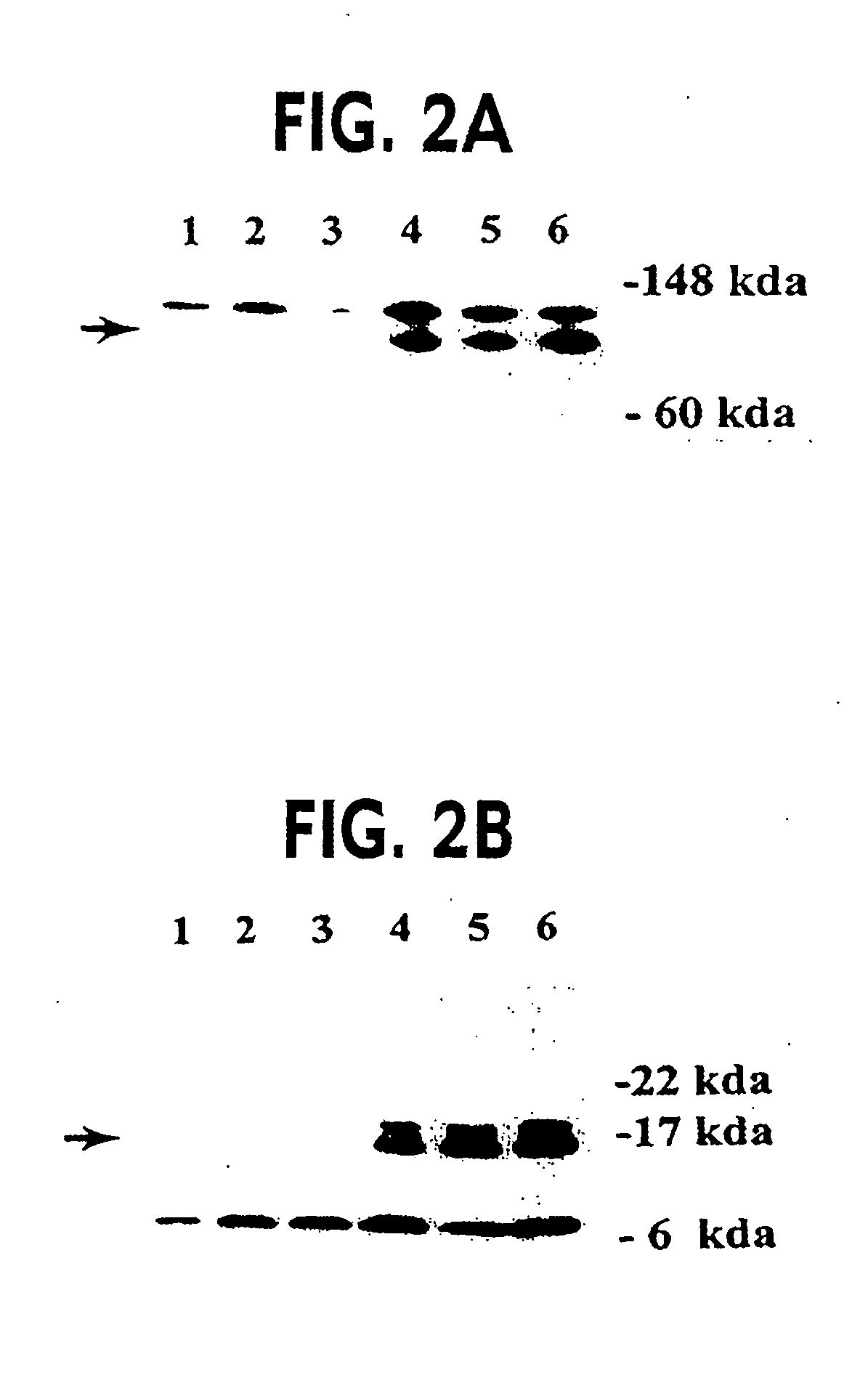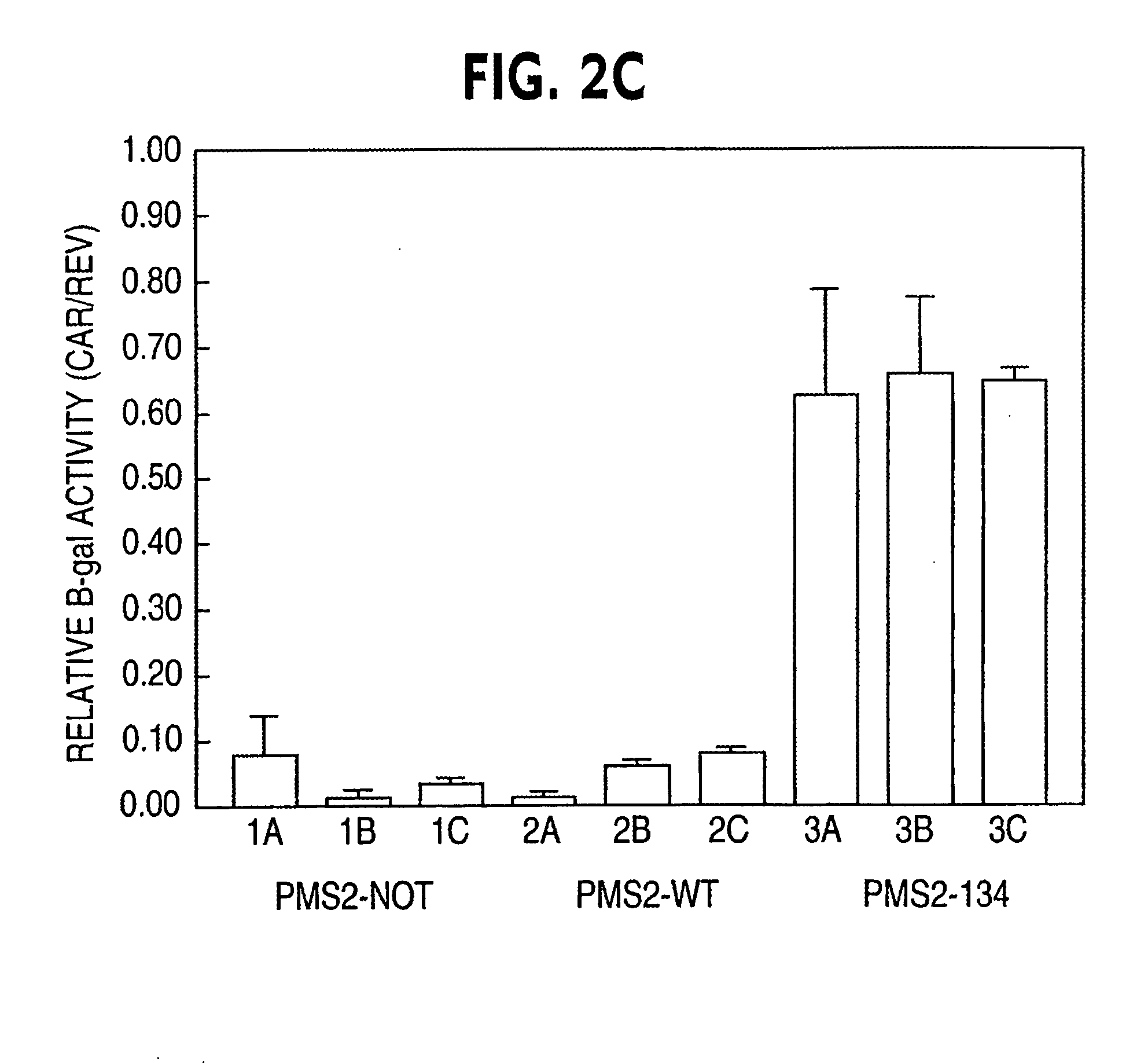Method for generating hypermutable organisms
- Summary
- Abstract
- Description
- Claims
- Application Information
AI Technical Summary
Benefits of technology
Problems solved by technology
Method used
Image
Examples
example 1
Use of Dominant Negative Mismatch Repair Protein to Cause Hypermutability in Mismatch Repair Proficient Cells
[0062] A profound defect in MMR was found in the normal cells of two HNPCC patients. That this defect was operative in vivo was demonstrated by the widespread presence of microsattelite instability in nonneoplastic cells of such patients. One of the two patients had a germline truncating mutation of the hPMS2 gene at codon 134 (the hPMS2134 mutation), while the other patient had a small germline deletion within the hMLH1 gene (26). These data thus contradicted the twohit model generally believed to explain the biochemical and biological features of HNPCC patients. The basis for this MMR deficiency in the normal cells of these patients was unclear, and several potential explanations were offered. For example, it was possible that the second allele of the relevant MMR gene was inactivated in the germline of these patients through an undiscovered mechanism, or that unknown muta...
example 2
Dominant Negative Mismatch Repair Gene Alleles Cause a Defect in MMR Activity
[0070] The most likely explanation for the differences in β-galactosidase activity between PMS2WT and PMS2134 transfected cells was that the PMS2134 protein disturbed MMR activity, resulting in a higher frequency of mutation within the pCAROF reporter and reestablishing the ORF. To directly test the hypothesis that MMR was altered, we employed a biochemical assay for MMR with individual clones from cells containing the PMS2-WT, PMS2-134 or PMS2-NOT empty vectors as described in example 1. Nuclear extracts were prepared from the clones and incubated with heteroduplex substrates containing either a / CA\ insertiondeletion or a G / T mismatch under conditions described previously. The / CA\ and G / T heteroduplexes were used to test repair from the 3′ and 5′ directions, respectively. There was a dramatic difference between the PMS2-134 expressing clones and the other clones in these assays (Table 2A). While all clo...
example 3
Use of MMR Defective Cells and Chemical Mutagens to Enhance Mutations in Genetic Loci
[0072] To enhance the rate of genetic mutations and produce cells with altered genes, RNA expression, or polypeptides, the use of MMR deficiency and chemical mutagens is a powerful tool to generate such diversity. The advantages of using MMR defective cells is that the decrease of this activity renders cells more resistant to the toxic effects of such compounds yet allows for the increase in genetic and phenotypic alterations of a host organism or cell. The following experiments are performed to demonstrate the utility of the invention. Cells that are genetically defective for MMR such as but not limited to HCT116, DLD-1, etc. or cells such as those described in example 1 and 2 that are made MMR defective by ectopic expression of a dominant negative allele is covered under this invention. Briefly, MMR proficient and deficient cells are incubated with a range (I m to 1 mM) of chemical mutagens for 1...
PUM
| Property | Measurement | Unit |
|---|---|---|
| Stability | aaaaa | aaaaa |
| Defects | aaaaa | aaaaa |
Abstract
Description
Claims
Application Information
 Login to View More
Login to View More - R&D
- Intellectual Property
- Life Sciences
- Materials
- Tech Scout
- Unparalleled Data Quality
- Higher Quality Content
- 60% Fewer Hallucinations
Browse by: Latest US Patents, China's latest patents, Technical Efficacy Thesaurus, Application Domain, Technology Topic, Popular Technical Reports.
© 2025 PatSnap. All rights reserved.Legal|Privacy policy|Modern Slavery Act Transparency Statement|Sitemap|About US| Contact US: help@patsnap.com



